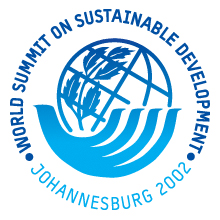Cooperative Initiative on Invasive Alien Species (IAS) on Islands
Description
Description
The ultimate goal of the Cooperative Initiative on Invasive Alien Species (IAS) on Islands is to facilitate cooperation in key areas of invasive alien species management on islands. As a result managers, practitioners and policy makers will have increased capacity to define IAS problems, design solutions and implement them, at community, national and subregional level. This in turn, will generate a significant improvement in the conservation of island biological diversity.
Islands and other geographically and evolutionary isolated places are particularly vulnerable to the threat posed by IAS to biodiversity due to high levels of endemism and high numbers of threatened species. The rate of extinctions of native species has been higher on islands than anywhere else in the world. Threats to biodiversity also affect the ecosystem functions, and the cultural and economic use made of biodiversity by local communities. However, while islands are more vulnerable to invasions by alien species, they also present special opportunities for preventing new alien invasions and for eradicating or controlling existing IAS.
The development of this initiative will facilitate further progress on an international scale,
starting in the South Pacific sub-region and then expanding to a global approach by applying this sub-regional experience more widely. It will eventually encompass all islands that have significant biodiversity, including small island developing States, other island countries and any countries with islands.
* Objectives of the initiative are
* Build local, national and sub-regional capacity
* Systematically develop better techniques
* Share knowledge, skills and techniques internationally
* Make better use of existing information
Islands and other geographically and evolutionary isolated places are particularly vulnerable to the threat posed by IAS to biodiversity due to high levels of endemism and high numbers of threatened species. The rate of extinctions of native species has been higher on islands than anywhere else in the world. Threats to biodiversity also affect the ecosystem functions, and the cultural and economic use made of biodiversity by local communities. However, while islands are more vulnerable to invasions by alien species, they also present special opportunities for preventing new alien invasions and for eradicating or controlling existing IAS.
The development of this initiative will facilitate further progress on an international scale,
starting in the South Pacific sub-region and then expanding to a global approach by applying this sub-regional experience more widely. It will eventually encompass all islands that have significant biodiversity, including small island developing States, other island countries and any countries with islands.
* Objectives of the initiative are
* Build local, national and sub-regional capacity
* Systematically develop better techniques
* Share knowledge, skills and techniques internationally
* Make better use of existing information
Partners
Governments:
Government of France - French Ag. Research Centre for Int¿l Devt (CIRAD)
Government of New Zealand - NZAID
Government Governments in the South Pacific Region
Major Groups:
Landcare, New Zealand (New Zealand)
University of Auckland (New Zealand)
BirdLife International (United Kingdom of Great Britain and Northern Ireland)
CABI International (United Kingdom of Great Britain and Northern Ireland)
The Nature Conservancy (TNC) (United States of America)
UN System:
International Maritime Organization (IMO) (United Kingdom of Great Britain and Northern Ireland)
Other intergovernmental organizations:
The World Conservation Union (IUCN), Invasive Species Specialist Group (New Zealand)
Secretariat of the Pacific Community (SPC) (New Caledonia)
South Pacific Regional Environment Prog. (SPREP) (Samoa)
IUCN - The World Conservation Union (Switzerland)
Government of France - French Ag. Research Centre for Int¿l Devt (CIRAD)
Government of New Zealand - NZAID
Government Governments in the South Pacific Region
Major Groups:
Landcare, New Zealand (New Zealand)
University of Auckland (New Zealand)
BirdLife International (United Kingdom of Great Britain and Northern Ireland)
CABI International (United Kingdom of Great Britain and Northern Ireland)
The Nature Conservancy (TNC) (United States of America)
UN System:
International Maritime Organization (IMO) (United Kingdom of Great Britain and Northern Ireland)
Other intergovernmental organizations:
The World Conservation Union (IUCN), Invasive Species Specialist Group (New Zealand)
Secretariat of the Pacific Community (SPC) (New Caledonia)
South Pacific Regional Environment Prog. (SPREP) (Samoa)
IUCN - The World Conservation Union (Switzerland)
SDGS & Targets
N/A
SDG 14 targets covered
Deliverables & Timeline
N/A
Resources mobilized
N/A
Partnership Progress
No progress reports have been submitted.
Please sign in and click here to submit one.
False
Feedback
Action Network


This initiative does not yet fulfil the SMART criteria.
Timeline
01 January 1970 (start date)
31 December 2022 (date of completion)
Entity
N/A
Goals
N/A
More information
Countries
N/A
